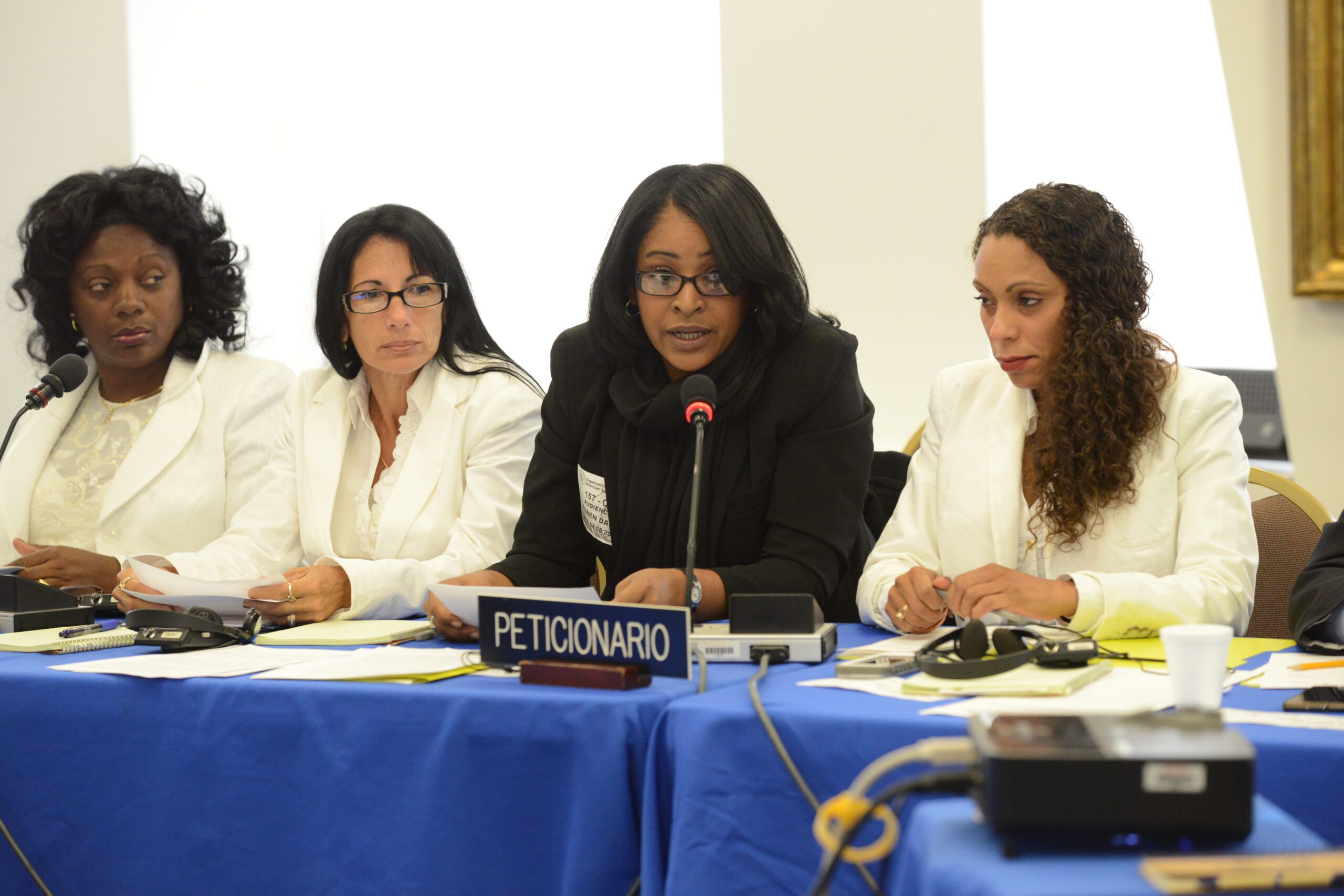Cuban Human Rights Defenders Report on Rights Violations on the Island before the Inter-American Commission on Human Rights
Photo courtesy of OAS photographer Daniel Cima, licensed under CC BY 2.0. Washington D.C., April 8, 2016 Members of independent Cuban human rights groups presented on violence against and intimidation of human […]

Washington D.C., April 8, 2016
Members of independent Cuban human rights groups presented on violence against and intimidation of human rights defenders and independent journalists in Cuba during a public hearing before the Inter-American Commission on Human Rights of the Organization of American States.
No representatives of the Cuban government attended. Nevertheless, Commissioner Esmeralda Arosemena de Troitiño, Rapporteur for Cuba, while lamenting the State’s absence reiterated the Commission’s invitation to the government to engage with human rights defenders and affirmed the Commission’s “commitment to be a vehicle for constructive dialogue between both parties.”
Magaly Norvis Otero, Executive Director of Hablemos Press, informed the Commission of the serious violations of rights to free speech and information that continue to occur in Cuba, where independent media have had their news sites blocked by State censors, their offices broken into and equipment stolen or damaged, and where reporters have been victims of arbitrary detentions. Kirenia Yalit Núñez Pérez of the Cuban Youth Dialogue Table testified to harrassment and threats to members of her organization, including restrictions on the groups international travel to participate in human rights events.
Lartiza Diversent of Cubalex explained to the Commission the difficulty of operating as an independent legal organization in Cuba and informed that members of Cubalex have been threatened and harassed on the basis of their gender or race. Leticia Ramos Herrería of the Ladies in White: Laura Pollan chapter, spoke harassment and intimidation, telling the Commission of that members of the Ladies in White have suffered nearly 2,800 arbitrary detentions thus far in 2016, and have been victims of threats, harassment and severe physical abuse by State agents, statements that were corroborated with photographs of injuries to activist perpetrated by Cuban security forces.
Commissioner Enrique Gil Botero saluted the great effort and acknowledged the risks assumed by the petitioners in coming before the Commission. Commissioner Botero asked about the number of political prisoners in Cuba. Berta Soler of the Ladies in White responded to the Commissioner’s question, stating that “although there is no international standard in Cuba for determining who is a political prisoner, because many times we are jailed on fabricated charges and sentences for common crimes, we can say that at this time there are around 115 political prisoners in Cuba.”
Commissioner Margaret Macaulay asked about repression against particularly vulnerable populations, specifically against Afro-descendants and LGBTI persons. In response to this question, petitioners cited the case of two LGBTI activists recently detained for reproducing trainings on the rights of the LGBTI community. Laritza Diversent added that “the level of violence in the repression of black women activists is brutal,” and that “Afro-descendancy is a determinant factor the cruelty of attacks” by State agents.
The petitioners made several recommendations to the Commission to address the severe violations of human rights defenders’ rights, asking the Commission to investigate cases of indiscriminate and excessive force by State agents. Petitioners asked that the Commission urge the Cuban government to eliminate obstacles barring independent organizations from legally carrying out their activities, to make the necessary legal reforms in order to guarantee full and effective freedom of expression and association, and to cease all activities that restrict these rights in their practice.
To access video of the hearings, please follow this link.

